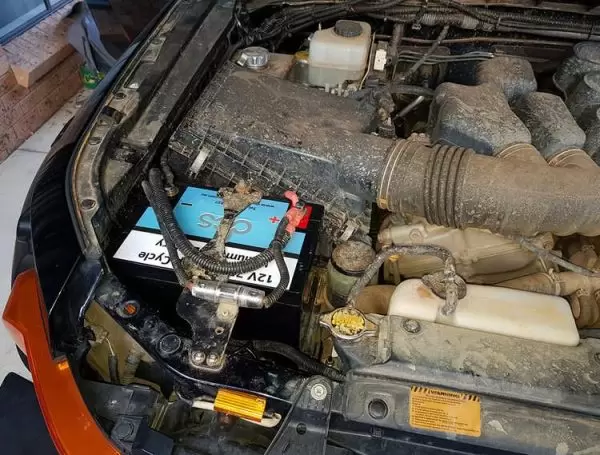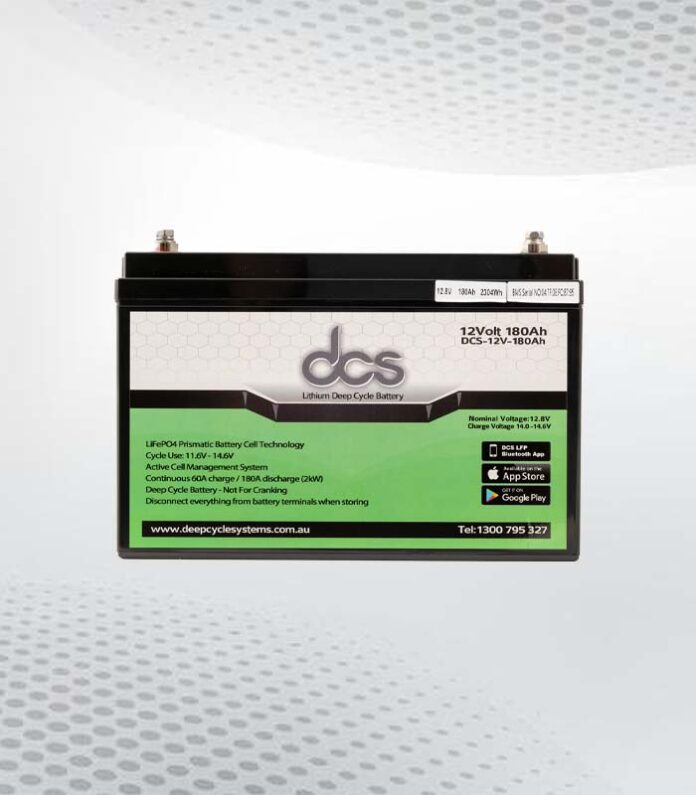The electric car revolution is well underway, and lithium car batteries are playing a big role in the future of transportation. From Tesla to Toyota, car manufacturers worldwide are looking for lithium car batteries to power their vehicles and revolutionize how people get from point A to point B. With the potential for cars to be powered by renewable energy sources, the Lithium Car Battery movement is gaining momentum and showing no signs of slowing down. In this blog post, we’ll explore how this new technology is transforming the automotive industry and what it means for the future of driving.
What Are Lithium Car Batteries?
Lithium car batteries are a type of rechargeable battery that is specifically designed for use in electric vehicles (EVs). These batteries are composed of lithium-ion cells, known for their high energy density and long lifespan. Unlike traditional lead-acid batteries, commonly used in vehicles for many years, lithium car batteries offer numerous advantages, making them a popular choice for powering EVs.
One of the main benefits of lithium car batteries is their ability to store more energy in a smaller and lighter package. It allows EVs to have a longer driving range and a higher power output than vehicles with traditional batteries. Lithium car batteries have a much faster charging time, allowing drivers to spend less time waiting at charging stations and more time on the road.
Another advantage of lithium car batteries is their durability. These batteries can withstand hundreds of charging and discharging cycles without losing capacity, making them a cost-effective option for EV owners in the long run. Moreover, lithium car batteries have a low self-discharge rate, meaning they can hold their charge longer when unused.
The Rise of Lithium-Ion Batteries
As the demand for electric vehicles (EVs) continues to grow, so does the need for advanced battery technology. It is where lithium-ion batteries come into play. The rise of lithium-ion batteries has been remarkable, revolutionizing how we think about energy storage and powering vehicles.
Lithium-ion batteries were first commercialized in the 1990s and quickly gained popularity due to their high energy density, long lifespan, and ability to recharge. Unlike their predecessors, such as lead-acid batteries, lithium-ion batteries offer a more efficient and lightweight solution for powering EVs. It has allowed for greater driving range and improved performance, making electric vehicles a more viable option for consumers.
In recent years, the automotive industry has significantly shifted towards lithium-ion batteries as car manufacturers strive to meet stricter emissions regulations and offer more sustainable transportation options. With advancements in battery technology, we now see EVs with longer driving ranges, faster charging times, and improved overall efficiency.
Benefits of Lithium-Car Battery
Lithium car batteries offer many benefits that are revolutionizing the automotive industry. One of the most significant advantages is their longer-lasting power. Unlike traditional batteries, which can quickly drain and leave drivers stranded, lithium car batteries have a higher energy density and can power electric vehicles for longer distances. It means fewer stops at charging stations and more time on the road.
Additionally, lithium car batteries have much faster charging times. While older batteries may take hours to charge fully, lithium car batteries can reach full capacity in a fraction of the time. It makes owning an electric vehicle much more convenient, as drivers can quickly charge their cars during a lunch break or a stop at a shopping centre.
Improved performance is another key benefit of lithium car batteries. These batteries offer higher power outputs, allowing faster acceleration and a smoother driving experience. It is especially important for electric vehicles, as it helps dispel the myth that electric cars are sluggish and inferior to traditional gas-powered vehicles.
Furthermore, lithium car batteries are more environmentally friendly. They emit fewer greenhouse gases and do not rely on fossil fuels for power. It makes them an excellent choice for those looking to reduce their carbon footprint and contribute to a cleaner and greener future.
The Future of Lithium Car Batteries
As the electric car revolution continues gaining momentum, lithium car batteries’ future looks promising. These batteries have already made significant energy storage and efficiency advancements, but the potential for further development is enormous.
We can expect to see even more powerful and longer-lasting lithium car batteries, allowing electric vehicles to travel greater distances on a single charge. It will greatly reduce range anxiety and make EVs more viable for consumers.
The charging infrastructure for lithium car batteries is also set to improve. As more charging stations are installed, drivers will have greater convenience and accessibility when charging their electric vehicles. It will help to address one of the major concerns for potential EV owners.
Moreover, the future of lithium car batteries is closely tied to advancing renewable energy sources. We expect greater integration between electric vehicles and renewable energy grids as the world moves towards a more sustainable future. It means that electric vehicles will not only be powered by lithium car batteries but also contribute to the overall stability and sustainability of the energy system.
Challenges Facing Lithium-Car Battery Revolution
While the lithium-car battery revolution is transforming the automotive industry, it does come with its fair share of challenges. One major challenge is the limited availability of raw materials needed for lithium batteries. As the demand for electric vehicles continues to rise, the supply of lithium and other essential minerals may be unable to keep up, leading to potential shortages and price increases.
Another challenge is the issue of battery degradation over time. Although lithium car batteries are designed to have a long lifespan, they eventually lose their capacity to hold a charge. It can result in decreased driving range and the need for more frequent charging, which can be inconvenient for drivers.
Furthermore, the high cost of lithium car batteries is also a significant hurdle. While these batteries have been steadily decreasing, they are still more expensive than traditional internal combustion engines. It can make electric vehicles less accessible to the general public and hinder the widespread adoption of this technology.
Additionally, the infrastructure for charging electric vehicles still needs to develop fully. The availability and accessibility of charging stations are still limited, especially in rural areas. This lack of infrastructure can create range anxiety for EV owners, as they may worry about finding a charging station on longer trips.
How Lithium Car Batteries are Changing the Automotive Industry?
The rise of lithium car batteries is revolutionizing the automotive industry in more ways than one. These advanced batteries transform how vehicles are powered and pave the way for a more sustainable future.
One of the most significant ways lithium car batteries are changing the automotive industry is through their superior performance. These batteries offer higher power outputs, allowing faster acceleration and a smoother driving experience. It has dispelled the myth that electric cars are sluggish and inferior to traditional gas-powered vehicles, making them a more attractive option for consumers.
In addition to improved performance, lithium car batteries are also driving advancements in electric vehicle infrastructure. As the demand for electric vehicles continues to grow, more charging stations are being installed to provide drivers with greater convenience and accessibility. This infrastructure development is essential for addressing one of the major concerns for potential electric vehicle owners – range anxiety.
The Impact of Lithium Car Batteries on the Environment
The impact of lithium car batteries on the environment cannot be overstated. These advanced batteries are revolutionizing how we power vehicles and contributing to a cleaner and greener future.
One of the key benefits of lithium car batteries is their environmental friendliness. Unlike traditional internal combustion engines that rely on fossil fuels, lithium car batteries produce zero emissions while in operation. It means they do not contribute to air pollution or greenhouse gas emissions, helping combat climate change and improve air quality.
Additionally, using lithium car batteries reduces our reliance on finite fossil fuel resources. As the world continues to deplete its oil reserves, shifting towards electric vehicles powered by lithium car batteries allows us to move towards a more sustainable energy future. Using renewable energy sources to charge these batteries, such as solar or wind power, can further reduce our carbon footprint and decrease our dependence on non-renewable energy.
Furthermore, the manufacturing of lithium car batteries has become more environmentally friendly over time. Companies are actively working to reduce the carbon footprint associated with the production process and are implementing sustainable practices to minimize waste and maximize resource efficiency.
How Lithium Camping Battery is Different?
A Lithium Camping Battery is similar to lithium car batteries because they use lithium-ion cells for energy storage. However, some key differences between the two make lithium camping batteries unique and specifically designed for outdoor adventures.
One major difference is the size and capacity of the batteries. While lithium car batteries are large and powerful enough to provide the necessary energy for an electric vehicle, lithium camping batteries are typically smaller and more portable. It makes them ideal for powering camping gear such as lights, fans, and small appliances.
Another difference is the voltage output. Lithium car batteries typically have a higher voltage output to meet the power demands of electric vehicles. In contrast, lithium camping batteries have a lower voltage output to match the power requirements of camping equipment. It ensures the battery is compatible with various camping devices and can provide the right amount of power without overwhelming them.
FAQs
1. How long do lithium car batteries last?
Lithium car batteries have a longer lifespan compared to traditional batteries. On average, they can last anywhere from 8 to 15 years, depending on usage, charging habits, and environmental conditions.
2. Are lithium car batteries safe?
Yes, lithium car batteries are safe when handled and used properly. Manufacturers adhere to strict safety standards to ensure their batteries are reliable and not pose a significant risk.
3. How long does it take to charge a lithium car battery?
The charging time for a lithium-car battery varies depending on the charger’s capacity and the battery’s state of charge.
4. Can I charge my electric vehicle at home?
You can charge your electric vehicle at home with a dedicated charging station or standard electrical outlet. Installing a Level 2 charging station will provide faster charging times than a regular outlet.
Conclusion
The lithium-car battery revolution is changing the automotive industry as we know it. With their longer-lasting power, faster charging times, and positive environmental impact, lithium car batteries are paving the way for a more sustainable future of driving.

